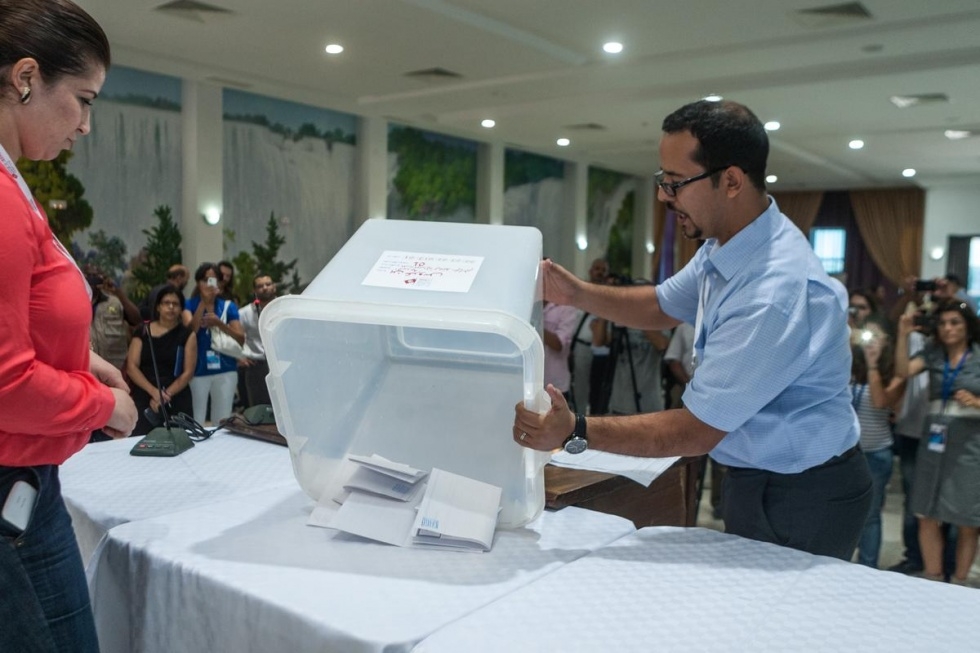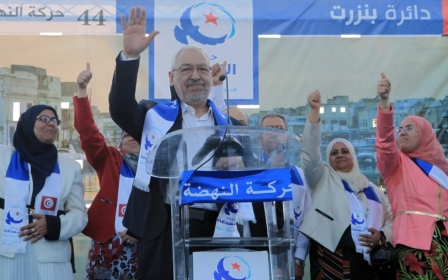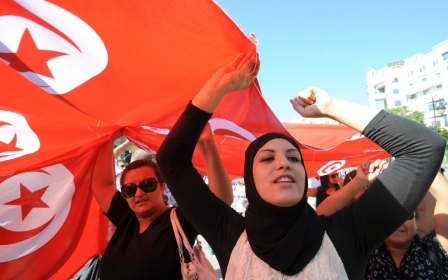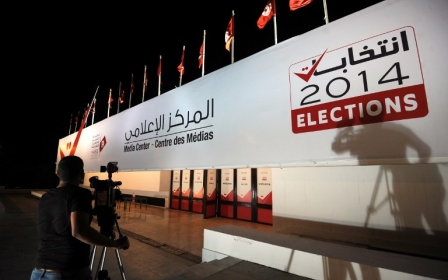Who are Tunisia's potential kingmakers?

As Tunisia’s first election since the country’s new constitution is nearing, most focus has been on the two biggest parties, the Islamist Ennahdha and its opponent Nidaa Tounes. Both parties are set to dominate the election outcome.
However, few expect either of these parties to gain the majority of votes. Instead, earlier opinion polls suggest a third of the electoral votes for each party respectively, which may mean that another political coalition is on the horizon.
Cooperation, consensus and compromise have been key words during the country’s post-revolutionary political transition, praised by the international community.
The trade union movement
The trade union movement in Tunisia effectively began in 1946, with the he establishment of the Tunisian General Union of Labour (UGTT).
Since then, the union quickly became political, fighting against French colonialism. In 2011, the UGTT chose to side with the people against the rule of former President Zine El Abidine Ben Ali, despite its strong ties to his party, the Constitutional Democratic Rally (RCD).
"UGTT is a very powerful institution in Tunisia, which comes from their historically important role," said Djordje Todorovic, the International Republican Institute’s Resident Country, highlighting the union’s network of 150 offices across the country.
When the assassination of the leader of the left-wing Democratic Patriots Party Chokri Belaid spurred a political crisis between Ennahdha and oppositional parties, UGTT played a prominent role in the mediation of a 'National Dialogue', ultimately leading to a political consensus, which was followed by the finalisation of the constitution and the placing of an interim technocratic government in power.
Since the overthrow of Ben Ali's RCD party, the new leader of UGTT Houcine Abbassi decided not to back a particular party.
However, the local branches of UGTT lean towards different political parties, said Todorovic. UGTT cooperates with political parties such as Ettakatol, The Popular Front, Nidaa Tounes, and, "there are also the more conservative branches of UGTT that are closer to Ennahdha," Todorovic added.
Small political parties
Before 2011 the political scene was dominated by Ben Ali’s RCD party, but since the revolution at least 160 political parties have emerged, according to the National Democratic Institute.
On Sunday the Tunisian people will have more than 1,300 different electoral lists (covering parties, unions and independent candidates) to choose from.
"There are so many parties," sighted a middle-aged voter on the island of Djerba, uncertain for which he would cast his vote for this Sunday.
Ennahdha gained the majority of the National Constituent Assembly seats in the country’s last elections, which were the first democratic polls since the revolution. Ennahdha led a political coalition, referred to as the Troika, with The Congress Party of the Republic (CPR) and Ettakatol.
CPR
The centre-left CPR was founded in 2001 but was quickly banned from the political sphere. Its leader, human rights activist and current interim president Moncef Marzouki is also one of the candidates for the Presidential elections, due to be held on 23 November.
ETTAKTOL
The other political member of the Troika was Ettakatol, a centre-left party founded in 1994 but which wasn’t legalised until 2002.
"I chose Ettakatol because it was a socialist party and also a party that acted in opposition to Ben Ali," explained former National Constituent Assembly member Lobna Jeribi.
Ettakatol’s leader Mustafa Ben Jaafar acts president of the National Constituent Assembly and is also running for presidency.
The Troika alliance stepped down in the beginning of 2014 to hand power to the technocrat government.
But political analyst Jerome Heurtaux thinks a future Troika coalition is unlikely. "Today the relationship between these parties is not very good," he said, which potentially opens up for other coalitions involving the other smaller parties.
POPULAR FRONT
The Popular Front is a leftist coalition of several Marxist and nationalist political parties. Its spokesperson Hamma Hammami is the secretary general of the communist Workers’ Party. "This front has gained some strength that it didn’t have before," argued Todorovic.
JOUMHOURI
Secular party Al Joumhouri or the Republican Party, was established in 2012 and is headed by the president-candidate and veteran activist Ahmed Nejib Chebbi with women right’s defender Maya Jribi as its secretary-general.
AFEK TOUNES
Right-wing leaning Afek Tounes is a liberal political party, which became independent in 2013 and has since then continuously gained support. “I think Afek Tounes, which has been working very hard and is growing will have a bright future,” said Todorovic.
UPL
Free Patriotic Union (UPL) is a liberal party established after the revolution by wealthy businessman Slim Riahi, who is also running for presidency.
"Many people I have spoken to have said that they will support UPL," commented Heurtaux.
A new coalition ahead?
Despite the domination of Ennahdha and Nidaa Tounes the small parties may be able to have an impact.
"I still think that the small parties have a chance of influence," argued Todorovic, but added, "However, I don’t think any of these forces will be prevalent."
Power-sharing and consensus building have been important aspects of Tunisia’s democratic transition and Ennahdha has officially announced its willingness to once again enter into a political coalition.
Islamist leader Rachid Ghannouchi recently declared its openness to a coalition with Nidaa Tounes.
"I wouldn’t exclude the possibility of a coalition between Ennahdha and Nidaa Tounes," said Todorovic, concluding that "Tunisians are very pragmatic."
Middle East Eye propose une couverture et une analyse indépendantes et incomparables du Moyen-Orient, de l’Afrique du Nord et d’autres régions du monde. Pour en savoir plus sur la reprise de ce contenu et les frais qui s’appliquent, veuillez remplir ce formulaire [en anglais]. Pour en savoir plus sur MEE, cliquez ici [en anglais].




